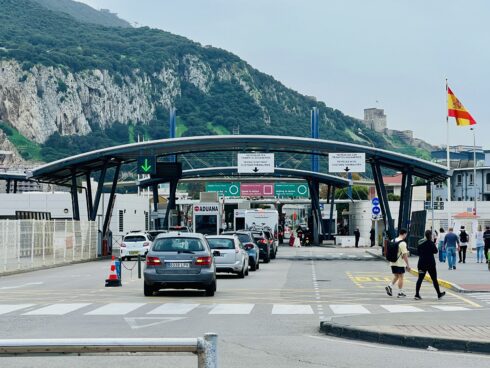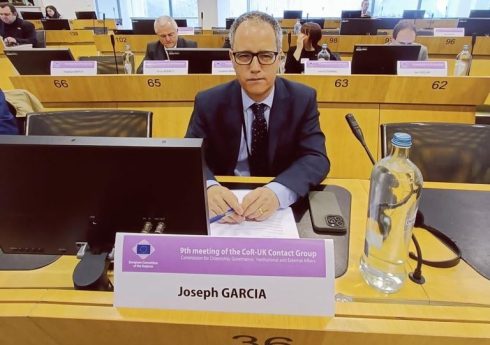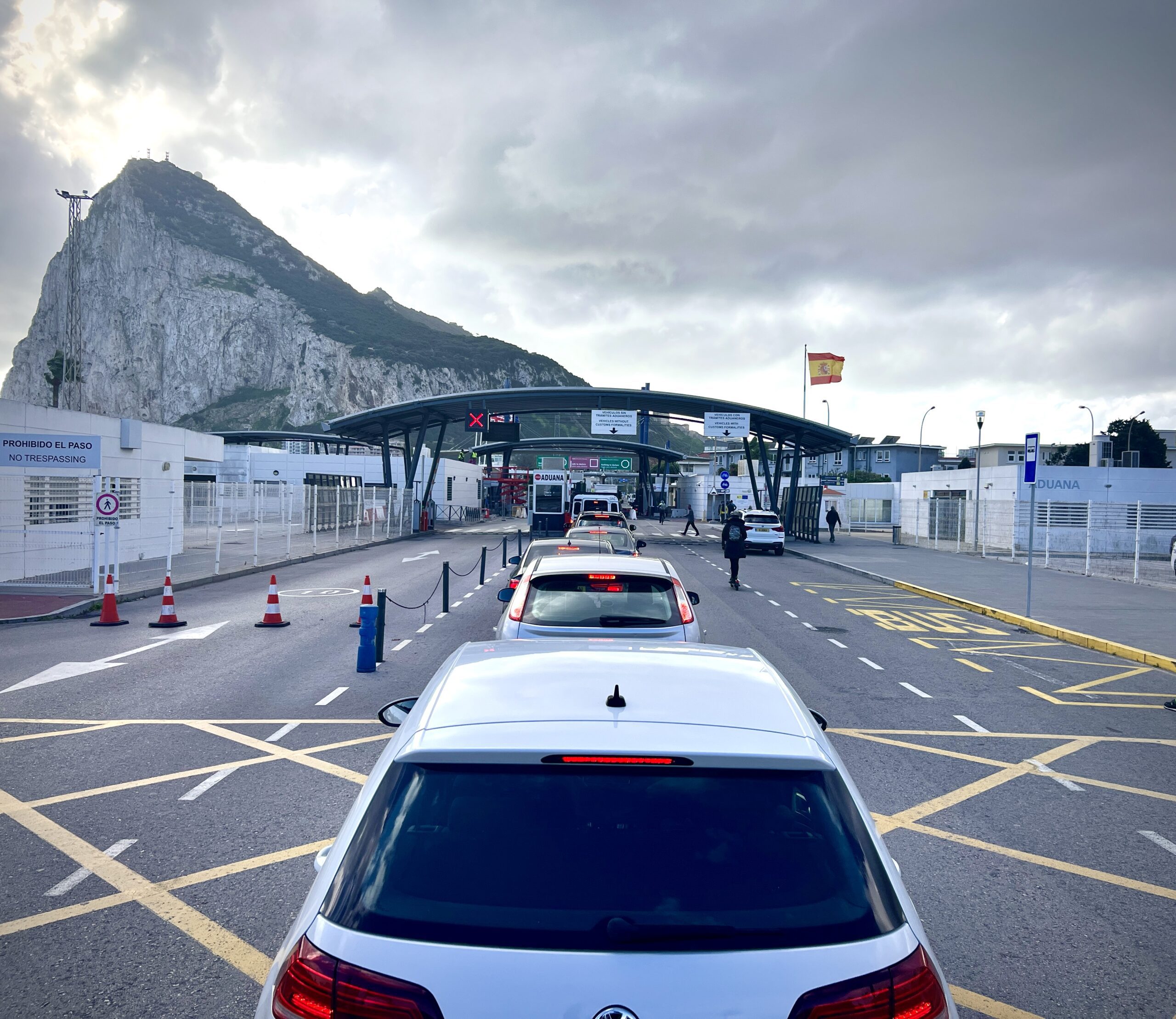GIBRALTAR’S Deputy Chief Minister has started to prepare the population for the reality of a hard border after claiming Spain ‘has done little to build confidence and trust in some areas.’
Writing his New Year’s message in the Gibraltar Chronicle, Joseph Garcia said that ‘no single item has occupied the time and the minds of those of us in government more than securing a treaty to govern our future relations with the EU.’
But he was careful to spell out what the practical effects of a ‘Non-Negotiated Outcome’ would mean for the people of Gibraltar – adding that it ‘does not bear thinking about.’
“It is perfectly understandable, when faced with incursions, vetoes and inconsistent behaviour at the border, that many people in Gibraltar will have genuine concerns about what the future may bring,” he wrote.

“There will be deep changes to the way we interact with the European Union in general and with Spain in particular whether or not there is a successful treaty outcome.
But he struck a defiant tone over the stalled negotiations, stating they would not ‘fold and give in to every demand made by the other side’ or ‘give Gibraltar away.’
“Those who mistakenly believe that we will succumb if they apply pressure at the last minute do not know the government and the people of Gibraltar and have certainly learnt nothing from our history.”
Instead, Garcia explained that measures are already being put in place to ‘ease’ the complications that will arise at the border once the EU’s Entry Exit System (EES) comes into effect later this year, should a deal not be in place.
Gibraltar is installing electronic gates on its side of the border to improve the flow of travellers by allowing simultaneous processing of more individuals entering the territory.

The move mirrors Spain’s adoption of the EES, which has already seen e-gates installed on their side of the border.
For those crossing into Spain post-EES implementation, a new registration process will be introduced.
On their first entry into the EU, travellers will need to register their biometrics at a booth on the Spanish side.
This is expected to take about 90 seconds, including answering a series of questions. Once registered, travellers can use e-gates for future crossings.
READ MORE: The Olive Press meets some of the good causes bringing festive cheer to Gibraltar this Christmas
The border fluidity will depend on the number of registration booths and e-gates, as well as travellers’ familiarity with the system.
Officials suggest that once travellers are registered, the process should become quicker.
EU nationals crossing the Gibraltar border will undergo lighter checks without the need for biometric registration.
READ MORE: Exclusive: Gibraltar is about to smash past the 40,000 population barrier – but can it cope?
Passengers in vehicles will be processed using automatic facial recognition cameras or by officers equipped with tablets.
The EU is working on legislation to allow member states to implement the EES gradually, giving Spain the flexibility to introduce the system at selected border crossings.
However, if a deal is struck then Gibraltar residents would be exempt from EES requirements and the border fence itself would likely be removed.








